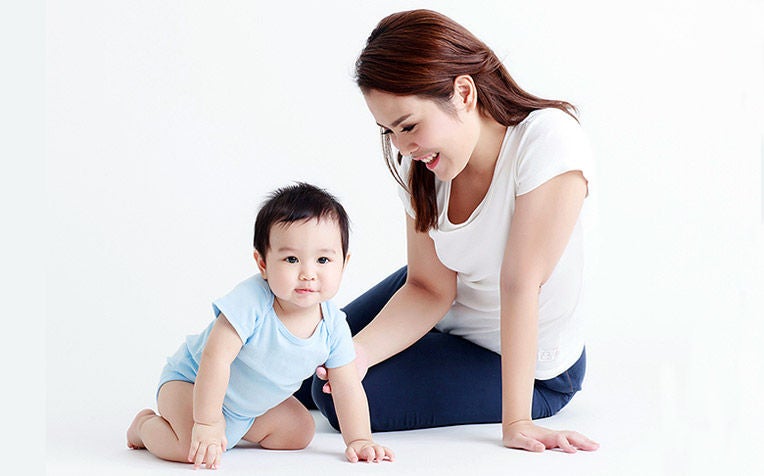
Baby neurodevelopment affects both child and mother, lasting up to twelve months after delivery.
Article contributed by Adj Assoc Prof Helen Chen, Head and Senior Consultant, Dr Theresa Lee, Senior Consultant and Ms Ong Li Lian, Senior Clinical Counsellor, all from the Department of Psychological Medicine at KK Women’s and Children’s Hospital (KKH), a member of the SingHealth group.
Article continued from a previous page.
Neurodevelopment milestones in babies start from a young age and continue up till a year after the child's birth.
Neurodevelopment milestones to be aware of
Three months after delivery
Hopefully, looking after your baby is getting better by now, with the baby’s night time sleep extending and the colic is settling. If it hasn’t, don’t worry - babies develop at their own pace.
Just take each day as it comes, and spend time just watching and nurturing your baby through your voice and your touch.
You can tell your baby what you are doing, as you change his/her diaper, or as you are folding clothes next to the play pen or cot – try a gentle sing-song voice which can be soothing for your baby, and at the same time, can help to calm you as well.
As you prepare to return to work (if that is your plan), help your baby adjust to his/her new caregiver – make a little ritual of saying goodbye and that you will see each other later – it does help your baby to feel comfortable about this change of caregiver, and helps you feel reassured too that all will be well.
For some mommies, difficult memories can resurface around this period if they have experienced unpleasant moments in their childhood. Do speak with someone for help if you notice this occurring – perhaps a counsellor or your family doctor.
Six months after delivery
Your baby is probably more settled now, and you are probably starting to find time for yourself once more.
In the coming months, your baby will start to learn new things and develop stronger muscles. He/she will be able to sit up and begin the discovery about the world – that you are quite separate from him/her, and that things can disappear from sight and yet appear – that’s why the delight in throwing that cup yet again and again from the high chair.
This might frustrate you sometimes, so it might help to sit on a low stool near the floor when your baby plays this game, so that it’s less tiring for you. It’s a necessary stage for baby, learning about what we call “object permanence” – it will help baby when he/she starts to feel anxious about separation, as all babies do, because he/she will know that you still exist and will reappear.
Play peek-a-boo too with your baby for the same learning – it is more fun because you get to your baby laugh in delight!
Nine months after delivery
Your baby is growing more and more aware of his/her world – curious about all that it has to offer – the sounds, the textures, and colours. He/she is also actually now able to move away from you independently, tummy-crawling or going on all fours.
Now keenly aware of whose face is familiar, and what a loving family member feels like, your baby will be anxious around strangers. Sometimes this can be a difficult phase for mommies because it feels as if baby is being clingy, or we worry that this is a sign of weakness or lack of independence.
On the contrary, it’s a good sign that your baby is attached to you, as his/her secure base, and this allows him/her to venture out to explore and learn about the world. It’s ok to let your baby play beside you while you do your own thing, like reading a book, or doing the laundry – it’s when you move out of his /her mind’s base that baby frets.
So just let baby know when you move around, and let him/her re-orientate with ease. Whenever your baby brings something to show you, take notice and delight in this moment because it’s what makes your baby feel secure and loved.
Take care of your own needs too, have regular ‘me-time’, and do spend quality time with your husband/partner.
12 months after delivery
Your baby is one year old! You’ve made it! Take a moment to reflect on your motherhood journey, and applaud yourself on a job well done because you deserve it!
For some mothers who have had a challenging time in their first pregnancy, this should be a time when all the difficult emotions are resolved. However, if you are experiencing difficult emotions such as low mood or excessively worrying, do speak with your family doctor who can make the necessary referral to a specialist.
Ref: M19















 Get it on Google Play
Get it on Google Play